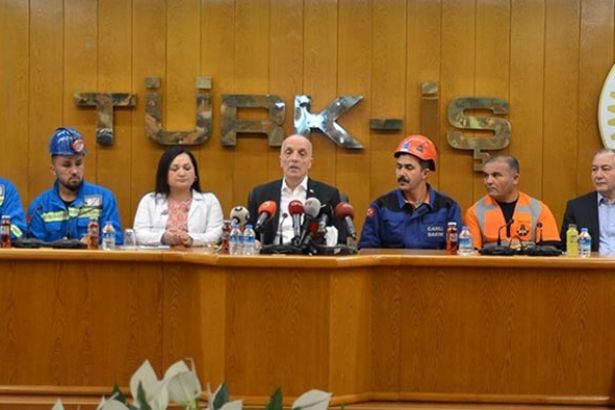Report: What have workers in Turkey lost with agreement signed between Turk-Is and AKP?

The Confederation of Turkish Trade Unions (TÜRK-İŞ), one of the yellow unions collaborating with capitalists, has come to terms with the government on collective labor agreement for workers in state enterprises on August 12, accepting the offer for a low wage increase and giving up its previous demands for workers.
Earlier this month, the President of the Confederation of Turkish Trade Unions has been caught off-camera saying to the Minister of Labor that "If we resisted against the government’s offer for the low wage increase, we would have put a spanner in the works. At least we didn’t let sleeping dogs lie."
The Protocol on Collective Bargaining Agreement signed between the AKP government and Türk-İş (Confederation of Turkish Trade Unions) on August 12 encompasses 200 thousand workers in public service.
Communist Party of Turkey (TKP) Labour Centre prepared a report regarding technical details as well as what workers lost with the protocol.
The report underlined that the agreement is binding for all trade unions within the confederation in accordance with the bylaw promulgated in 2017. Such binding force in effect suspends the right to strike since it prevents disagreement among the unions.
The report also underlined that the agreement would serve as an example for future collective bargainings in the private sector. The report pointed out that there was a huge difference regarding what Turk-Is offered for salary rise as well as salaries of workers were already curbed as a result of taxes. Therefore, the agreement would serve as an example for the private sector to curtail workers' income in times of economic difficulties.
The report underlined that Türk-İş did not have to sign the agreement.
1- Workers in public service were subjected to low wage increase although they are already struggling with the increasing prices.
2- The agreement does not cover outsourced workers so they were even deprived of such a wage rise.
3- Workers were deprived of collective bargaining.
4- Strikes were banned in public service.
5- Pressure was put on the present and future collective bargainings.
6- Individual trade unions could have undertaken collective bargaining and signed separate agreements. Türk-İş did not have to sign the agreement.




